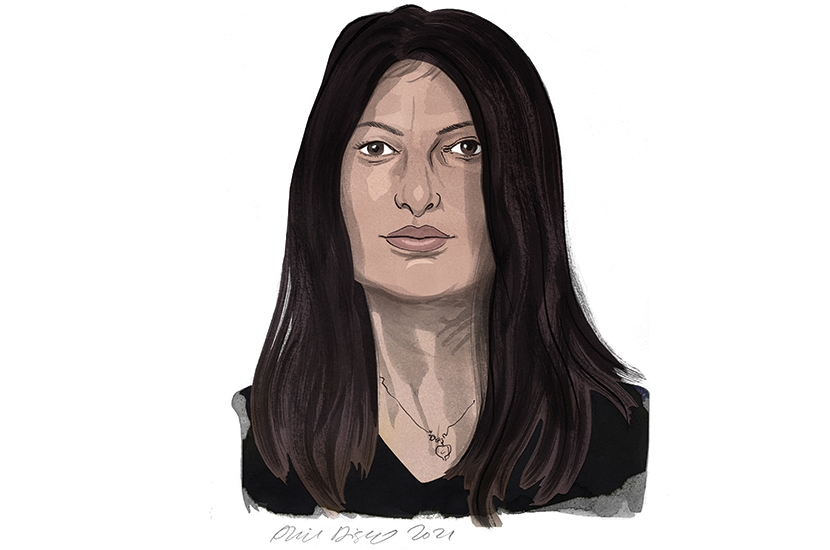Uppsala, Sweden
Nooshi Dadgostar is Sweden’s new political star. A young, softly spoken politician with Iranian immigrant parents and an unfinished degree in law, she became the leader of the Vansterpartiet (‘Left party’) late last year — taking over from Jonas Sjöstedt, a bleeding-heart version of Jeremy Corbyn who struggled to shake off the party’s communist past. Most of her predecessors have tried but failed to become a central part of the national political conversation. But this week, she succeeded: by taking out the Swedish prime minister. If he tinkered with rent controls, she said, she’d topple him with a vote of no confidence.
She was as good as her word. Stefan Löfven is the first Swedish leader in history to lose a confidence vote and he now has two options: to build a new coalition or call another general election.
It’s a problem that speaks to a wider theme: the fragility of the political centre in European politics. Ever since the election in 2018, Löfven’s red-green government has been ruling on shaky grounds. It took four months of coalition talks for him to agree a deal with the two liberal parties, whose demands included reform of rent controls. COVID is not really a political issue in Sweden. The real hot potato is how hard it is to find a place to live, given the price caps imposed on landlords mean few new apartment houses are getting built.
Rent controls, of course, benefit those who already have a rental contract — so the system is forcibly policed by the Union of Tenants, who for a long time have been a wing of the country’s labor movement. As the price of power, Löfven had to agree to take on this union. He also promised to cut taxes for top earners and soften Sweden’s rigid employment laws: two other reforms which most people on the left regard as cardinal sins.
But Löfven also needed the backing of Dadgostar’s Left party to avoid defeats in parliament. Given that she still campaigns on a Marxist program to abolish capitalism and substitute it with a ‘classless society’, there was always going to be a moment when her party baulked. That came this week.
So Löfven’s fate has followed what is now a familiar pattern in Europe. In January, Mark Rutte’s coalition government in the Netherlands fell because of a scandal over child welfare fraud. The Belgian government is another messy coalition: if an election were called today, Flemish nationalists and separatists would be a whisker away from winning a nationwide majority. In Spain, meanwhile, Pedro Sánchez’s socialist coalition government has a tiny majority and is edging closer towards collapse.
Sweden’s Scandinavian neighbors also have coalition pains. In Norway, Erna Solberg’s minority coalition looks set to be ousted in September, when the country goes to the polls. But it’s hard to see how the opposition will be able to scrape together a coalition with a unifying agenda.
Despite high poll ratings for her handling of the pandemic, Sanna Marin’s five-party coalition in Finland has had some turbulent months. One party has threatened to depart from the government because of what it sees as too much public borrowing.
Europe is increasingly ungovernable. Much of the political drama comes down to the growth of populist parties on the left and the right. The old centre cannot hold any more, but no one really knows what can replace it. The British answer — to reform the center-right and kill the populist parties by accepting the demand for border controls and the dialing back of globalization — is considered too extreme for many centrist European leaders. Instead, old establishment parties form new coalitions with populists, often with unsuccessful outcomes. Otherwise they build hopeless coalitions to prevent populists from gaining influence.
Ironically, Nooshi Dadgostar’s move against Stefan Löfven may pave the way for a new center-right government. In fact, it may lead to exactly the outcome that the parties behind Löfven’s ramshackle coalition wanted to avoid in the first place: real political influence for the Sweden Democrats, the nationalist-populist party that many people consider to be beyond the pale. Jimmie Åkesson, their leader, has already made it clear that he wants to negotiate with Ulf Kristersson, the leader of the center-right Moderate party.
Comrade Dadgostar has a different plan. She has already said she wants Löfven to stay as leader, but to adhere to a leftist agenda. One of the liberal parties that previously backed Löfven has already declared that they now will support Kristersson, the most likely alternative prime minister. But he’d need to win the support of the Center party, a far more challenging task now that its support is drawn less from right-leaning countryside people and more from metropolitan voters. So the Center party could be kingmakers: their choice would be between a red-green government with the explicit support of the Left socialists or a center-right government with some form of accord with the Sweden Democrats, whom they previously regarded as untouchable.
If this looks like an almighty mess, then remember what Britain’s House of Commons looked like before the 2019 general election: a Tory government unable to govern, expelling 21 of its own MPs and trying to reach out to a coalition of voters. Britain’s story culminated in Boris Johnson winning an 80-seat majority — and in Ukip (or its successor movements) dying. It is tempting for many centrist parties to think that if they stand firm, the populists will go away. But Swedish voters have already made their views known. They can tolerate political influence from both the far-left and the far-right. The centrist parties will have to accept this new political reality.
This article was originally published in The Spectator’s UK magazine. Subscribe to the World edition here.


















